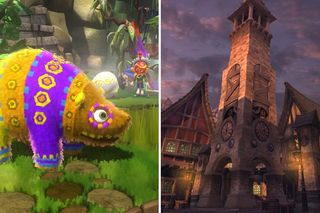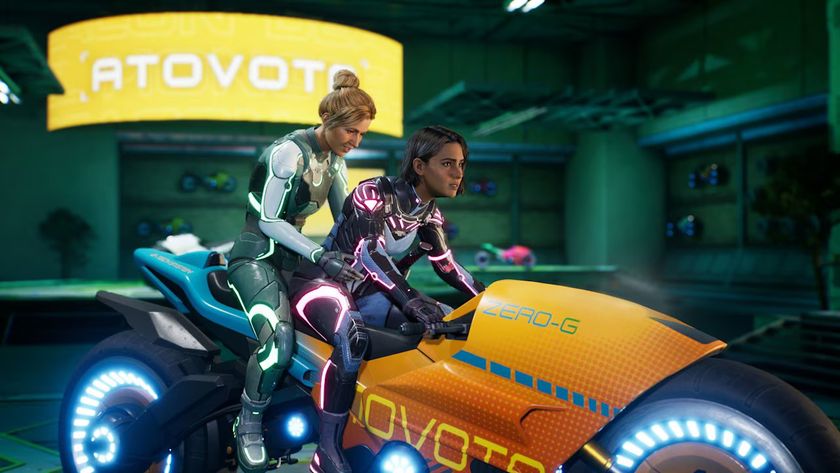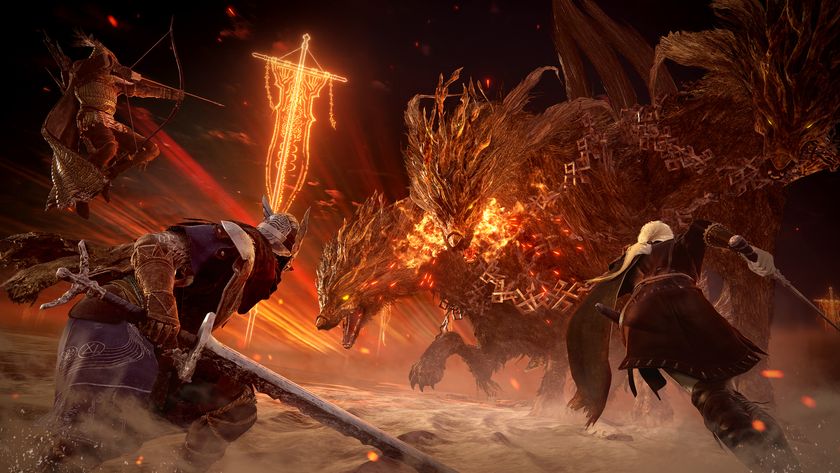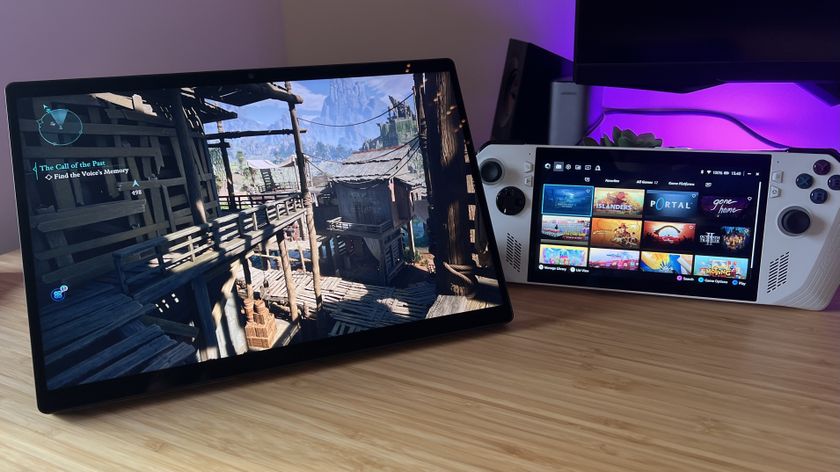Are developers even listening?
Is your voice being heard by the people that make games? We find out...
14 Dec, 2007
Every gamer is an armchair critic. We all have brilliant ideas on how a developer could have done a better job or what they need to include in their next game to make it the absolute pinnacle of awesomeness. And truly dedicated armchair critics want their valuable opinions to be heard. So they post on a forum. Maybe the developer's own dedicated virtual chamber or just a general gaming arena of chat and debate. But are the developers actually listening and, more importantly, do they take notice of what we - the gamers - have to say?
To find out we quizzed some of the people on the frontline of gamer relations at five different developers. First up, we met with Sam Van Tilburgh and George Kelion, the delightfully affable community managers at UK developers Lionhead and Rare respectively. Here's what they had to say...
Lionhead and Rare
GR: Do developers listen to gamers?
Sam: Yes, definitely - Lionhead listens to the community, to gamers, to the fans. Lionhead's been making games for 10 years and I know that from the beginning - when people came out and spoke about Black & White at the time - they've taken a proactive interest in their community. But there is a certain limit to how much you can take on board.
George: I suppose when you ask 'Do developers listen to gamers?' it depends on what they are saying. We get loads of stuff in about Killer Instinct 3 and a sequel for Jet Force Gemini. We get really specific ideas saying 'I want a minotaur with an axe' and we have to say 'thanks, really, really thanks, we really appreciate your enthusiasm...'
Sam: But we've got plenty of minotaurs already! [laughs] It happens a lot with Fable 2, and this is where the forums and fan-sites come in, where everybody has an opinion. But there's only so much that community feedback can input into the development of the game. You might actually enjoy not being able to jump over fences, whereas I would like to be able to jump over fences. You can't please all of the people all of the time.

Above: Rare, the maker of Viva Pinata (left) and Lionhead, who is currently busy at work on Fable 2 (right), are all ears when it comes to hearing what YOU have to say
GR: How are opinions and suggestions put forward by the community on forums and fan-sites relayed to your development teams?
Sam: The thing to remember is that as community managers we are that bridge between the development team and the gaming public. But we can't relay in the deepest detail what the gaming public is saying to the development team. I think it's more a matter for us guys to take on board what the overall opinion is and when we do come to sit with the team during design meetings we can make sure that people's expectations of the game are addressed in what the design team come up with.
And then there's the other way round - when I sit with the design team and we're having a play-through session of Fable 2, Peter [Molyneux] will say to me 'Sam, can you find out what people are going to think of implementing this feature'. And then we post a community poll on the web site and ask for people to send us their suggestions or we do it a little bit more grass roots and make up an alter-ego and kick off conversations to try and get input from people.
GR: Presumably part of your job is to filter the good community ideas from the bad?
George: If someone says 'make the dog green', no one needs to know that somebody has said that.
Sam: Exactly. And that's the point I was making earlier. We can't relay all that endless information and opinion back to the development team just because you might like a green dog. I might like a pink dog. It's more a case of making sure that the overall opinion gets back.
George: It's mono-mind - that kind of general consensus of opinion that gamers relate. We're always listening and we listen to all the opinions out there, or at least we try to, in order to get a good fix on where people are coming from. In terms of actually being able to bring those opinions into effect - into actual finished game design - it's a bit unrealistic.
A lot of the time I think designers feel that they work best when they're focused on their own vision without taking too much in from the outside. However, the balance of that is that they've still got teams and they are themselves interested in making sure their game is what people want to play. Nobody wants to make an unpopular game. It's a balancing thing.
Sam: And sometimes - on a few occasions - game features or design suggestions made by the community have actually made it into a Lionhead game. One example are the 'advisors' in Black & White. That actually came from a conversation between Lionhead and the community back in - I think - 1998. The guys on the forums - me included because it was before I got a job at Lionhead - were talking about angels and devils in the game, which eventually led to them making it into the game in the form of the advisors.
Another example is the 'sandgoose' in Fable. The sandgoose doesn't exist. It's basically a bird that speaks a native language and wanders in the desert. It was made up by the Lionhead community. They invented it and they created websites for it. They made it all up. But then that caused us problems because people were expecting to have a sandgoose in Fable, which obviously we never committed to doing. But everybody was talking about it and expecting it, so we did slip one line of dialogue in there at the very last moment. But now, in Fable 2, I can exclusively reveal that there's going to be a sandgoose. It won't be an actual bird talking in the desert, but there is a sandgoose.
Above: Rare, the maker of Viva Pinata (left) and Lionhead, who is currently busy at work on Fable 2 (right), are all ears when it comes to hearing what YOU have to say
GR: How are opinions and suggestions put forward by the community on forums and fan-sites relayed to your development teams?
Sam: The thing to remember is that as community managers we are that bridge between the development team and the gaming public. But we can't relay in the deepest detail what the gaming public is saying to the development team. I think it's more a matter for us guys to take on board what the overall opinion is and when we do come to sit with the team during design meetings we can make sure that people's expectations of the game are addressed in what the design team come up with.
And then there's the other way round - when I sit with the design team and we're having a play-through session of Fable 2, Peter [Molyneux] will say to me 'Sam, can you find out what people are going to think of implementing this feature'. And then we post a community poll on the web site and ask for people to send us their suggestions or we do it a little bit more grass roots and make up an alter-ego and kick off conversations to try and get input from people.
GR: Presumably part of your job is to filter the good community ideas from the bad?
George: If someone says 'make the dog green', no one needs to know that somebody has said that.
Sam: Exactly. And that's the point I was making earlier. We can't relay all that endless information and opinion back to the development team just because you might like a green dog. I might like a pink dog. It's more a case of making sure that the overall opinion gets back.
George: It's mono-mind - that kind of general consensus of opinion that gamers relate. We're always listening and we listen to all the opinions out there, or at least we try to, in order to get a good fix on where people are coming from. In terms of actually being able to bring those opinions into effect - into actual finished game design - it's a bit unrealistic.
A lot of the time I think designers feel that they work best when they're focused on their own vision without taking too much in from the outside. However, the balance of that is that they've still got teams and they are themselves interested in making sure their game is what people want to play. Nobody wants to make an unpopular game. It's a balancing thing.
Sam: And sometimes - on a few occasions - game features or design suggestions made by the community have actually made it into a Lionhead game. One example are the 'advisors' in Black & White. That actually came from a conversation between Lionhead and the community back in - I think - 1998. The guys on the forums - me included because it was before I got a job at Lionhead - were talking about angels and devils in the game, which eventually led to them making it into the game in the form of the advisors.
Another example is the 'sandgoose' in Fable. The sandgoose doesn't exist. It's basically a bird that speaks a native language and wanders in the desert. It was made up by the Lionhead community. They invented it and they created websites for it. They made it all up. But then that caused us problems because people were expecting to have a sandgoose in Fable, which obviously we never committed to doing. But everybody was talking about it and expecting it, so we did slip one line of dialogue in there at the very last moment. But now, in Fable 2, I can exclusively reveal that there's going to be a sandgoose. It won't be an actual bird talking in the desert, but there is a sandgoose.
Sign up to the 12DOVE Newsletter
Weekly digests, tales from the communities you love, and more

Split Fiction director Josef Fares says Ubisoft is "struggling" and should make a co-op Splinter Cell game: "Don't chicken out to do single-player; just say this is split-screen only"

Elden Ring Nightreign beta invites are apparently so in demand, scalpers are already trying to resell them for hundreds of dollars
Most Popular








